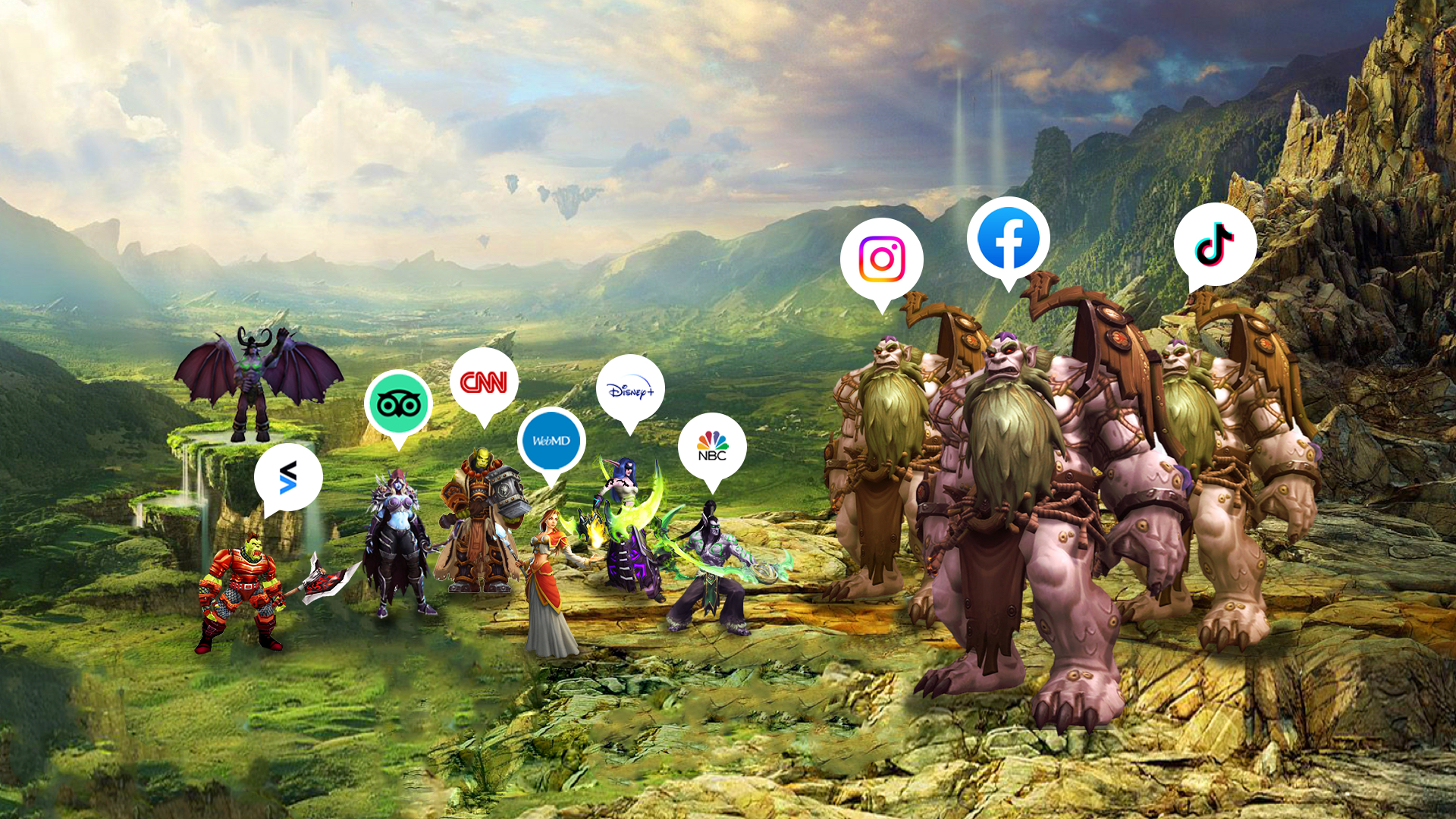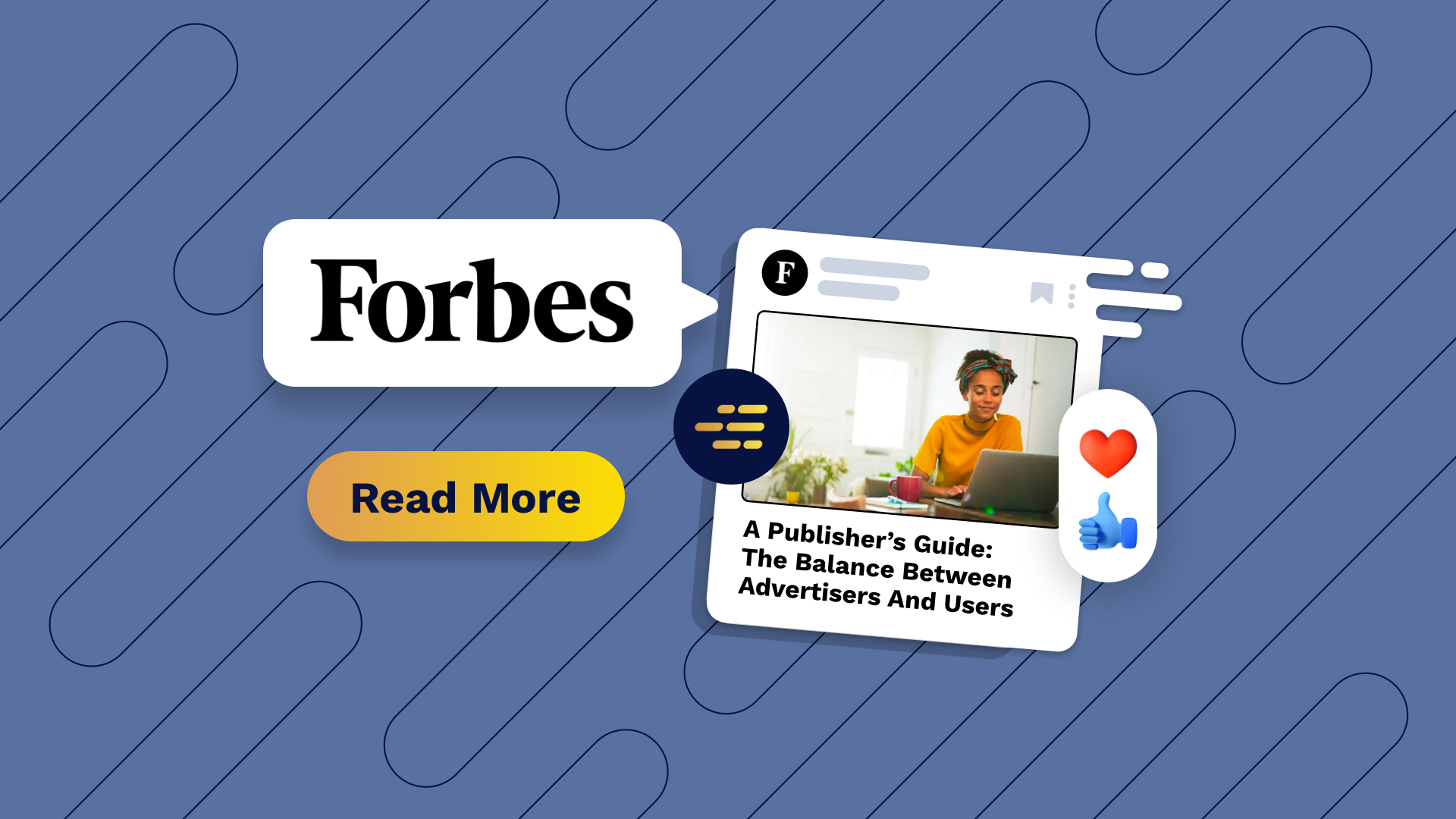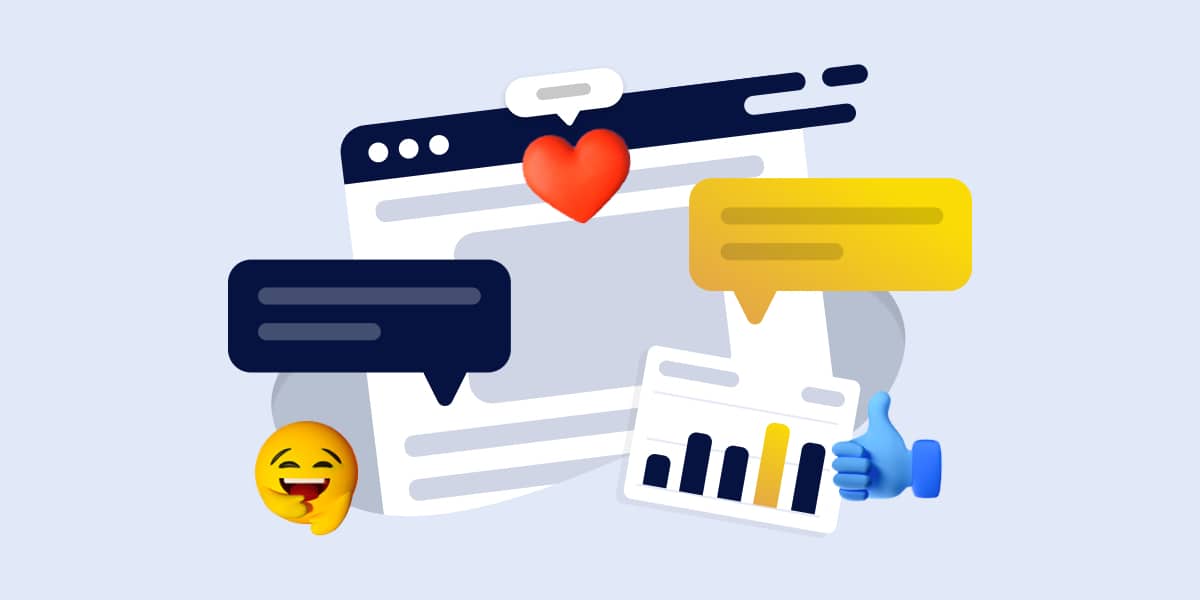Why publishers are fighting to reclaim their communities
April 2023

Online community building has always been an important tool in the publisher’s arsenal. It drives up page views, allows the users’ voices to be heard, and creates engagement. Online communities build loyal connections and that brings audiences back time and time again. From the early days of website guestbooks and commenting, giving our audiences a chance to be a part of what we do has proven to be an effective way to build value.
However, somewhere along the line, something went wrong. We moved from building value for our businesses directly on our platforms to handing it over to the “big platforms”. We gave them our audience, our content, and our ad revenue, and they happily took it all in exchange for some shiny tools and the promise of growing our audience. Increasingly, publishers are not seeing that arrangement as great of a deal as it once appeared to be.
Why we gave it all away
It’s not difficult to see the appeal the “big platforms” had. Free, ready-made tools that required no upkeep, had us like flames to a moth, especially when many communities were being run on expensive and complicated third-party software. But it was the promise of tapping into growing social media audiences that was the greatest allure. When your audience engages in your website through discussion modules and forums, it only gets witnessed by those already on your website. When it happened on Facebook, their connections could see it too, widening your net and attracting more people to your cause. And if you wanted to grow your audiences even more, it was cheap and easy to do so with built-in ads.
As the “big platforms” began to take over the community, they set the expectation too. People wanted the immediacy of apps with their attention-seeking notifications and the convenience of a single place to converse whatever the topic. As Facebook, in particular, took over, forums and commenting quickly seemed dated and limited. They offered less to the publishers and were not what users preferred, so the platforms became even more dominant.
Cracks start to appear
Sticking with Facebook, what happened next became the playbook for all the “big platforms”. The algorithm was tweaked and suddenly brands and publishers needed to pay to reach the audiences they’d built there. Valuable followings, either invited over from legacy communities or paid to be rebuilt on Facebook, could now only be readily reached when you paid to advertise to them again. Facebook had served up a timely reminder about the dangers of renting vs ownership.
The deal continued to worsen. Not only had it become expensive to reach our audiences, the free additional reach from being on the platform was all but killed. Beyond the finances, other problems surfaced:
An increasingly divided world had led to online toxicity. Having very different communities on a common platform meant those communities overflowed into one another and tensions rose. Discussion led to debate, which gave way to conflict. Moderation became difficult with limited tools in a space the publisher didn’t own. As disillusioned audiences moved away from once-dominant platforms, publishers were left without the means to follow them to their new haunts without starting afresh.
The value of audiences
Publishers paid an additional premium when they outsourced their community: Ad revenue. Those views of user-generated content may not always have been the most profitable, but they could add up to something significant when the audiences were engaged and large enough. What most publishers didn’t see coming was how the value of those audiences was set to increase beyond the ads on the pages they viewed.
The “big platforms” justify their enormous valuations on the strength of their audience data. This is the exact data we give away when we outsource our community, and the value of that data is ever-increasing. The ongoing discussions and changes in the cookie landscape mean that third-party cookies, and the data they track, are becoming less useful. This has pushed up the value of reliable first-party data. When we keep control of our communities, we have the opportunity to learn more about those audiences and leverage the data that they generate (with their permission and in a privacy-compliant way, of course!). With the other advantages of outsourced community eroded and the value of keeping it close increased, it is no wonder publishers are looking and bringing community and discussion back home.
A third way
Despite all the advantages that come with owning your own community and keeping control of the discussions they generate, few major publishers have been quick to return to old models. Where some Facebook and LinkedIn groups have certainly reappeared as forums, all the old problems of that model still exist. Instead, many have opted to stick with platforms, but choose those with the option that allows them to keep control of their audiences.
Insticator’s own commenting product is one such solution offering publishers the benefits of a ready-to-use and maintenance-free platform but without loss of revenue or control. Insticator Commenting allows publishers to quickly roll out fully featured discussion features that add value to their audiences rather than just sending it away to the “big platforms” aka. tech giants. Because discussions happen entirely within the publisher’s pages, their audiences stay on-site and strengthen their relationships with the host site rather than with the platform. In fact, through features like “Trending Now,” we actively encourage more page views on your site. Because the discussions live on your website, they’re your audiences. That means encouraging lively discussions with less conflict (but backing it up with excellent human and AI moderation tools just in case).
Insticator Commenting isn’t the only way to build a lively community within the parameters of your own site (even if we do think it’s the best way!). We’ve built it with the publisher in mind at all stages. Not only does that mean giving publishers community tools that add revenue while not detracting from it, but vitally allows them to retain control of their own audience.
That control will continue to grow in importance too. The changes around advertising and cookies have barely started and first-party data is being seen as a vital part of future publisher success. Learning about our audiences and keeping them close and engaged continues to become ever more important. Solutions, like Insticator Commenting, that give publishers the means to do that without “giving away the family silver” are going to be vital to many looking to do that.

Written by


